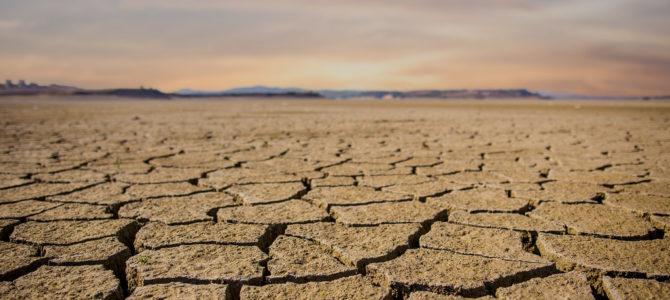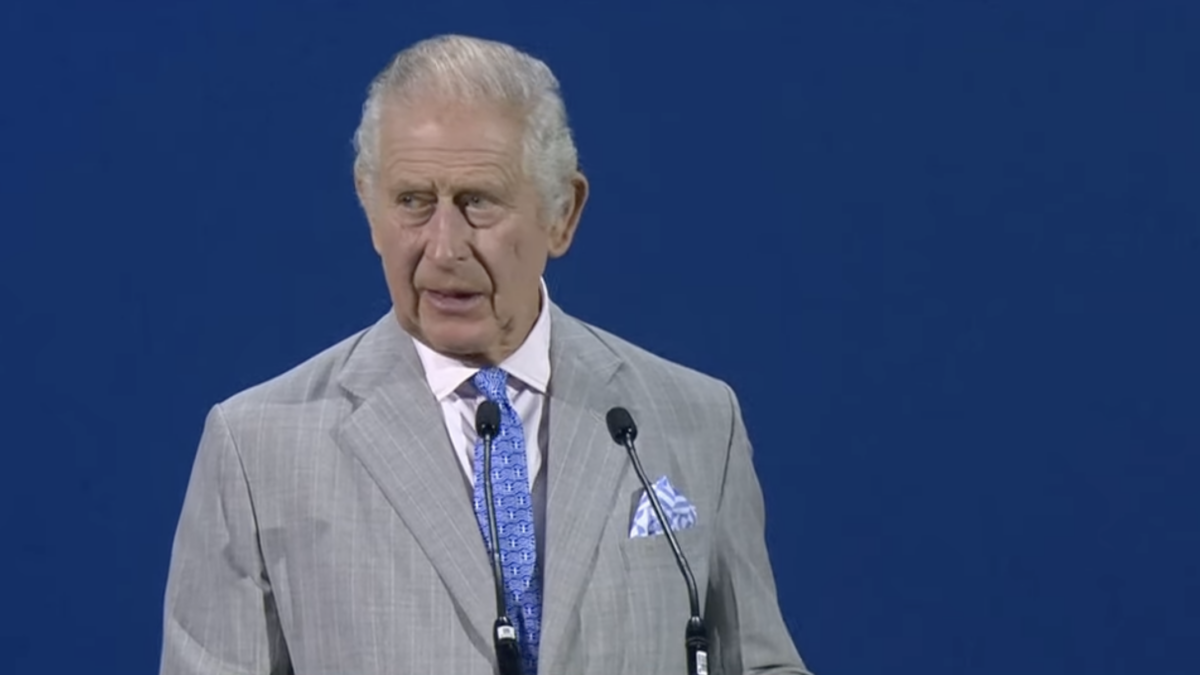
So what are the consequences of Donald Trump pulling America out of the Paris Agreement on climate change? Bad news: the planet is going to die.
No, really. That’s what the Left is actually claiming. Scientific American tweeted out a photo of the Earth made into a barren wasteland as a result of this one decision.
What will the world look like if the U.S. bails on the Paris climate deal? https://t.co/ywfDw3PmEg pic.twitter.com/ARE4u7zCmm
— Scientific American (@sciam) June 1, 2017
My favorite reply: “You claim to be scientific but imply that increased C02 will kill trees?”
A few others stuck to the formula of the old joke: world to end, women and minorities hardest hit.
Trump’s war on the environment is a war on the young and the unborn https://t.co/rdHeZTgveZ
— Sister Rose Pacatte (@SrRoseMovies) June 1, 2017
Pulling out of the Paris Agreement would be a massive step back for racial justice, and an assault on communities of color across the U.S.
— ACLU (@ACLU) June 1, 2017
A Vice editor warns that “your kids are gonna die from climate change.” Christoper Mims at the Wall Street Journal declares that we have flunked as a species and that “we still have to de-carbonize our civilization or risk actual extinction.” Extinction.
But that seems mild by comparison to others. Trita Parsi says, “Trump just declared war on the very idea of life on earth.” One leftist website claims that “With each passing day, the long-term prospects for life on Earth grow increasingly dim,” and quotes John Kerry: “What’s the worst that happens if they’re wrong? The planet dies.” Both CNN and The Huffington Post summed up the message of the day as “Trump to Planet: Drop Dead.”
HuffPo right now: "TRUMP TO PLANET: DROP DEAD" pic.twitter.com/q2pSyy805h
— Oliver Darcy (@oliverdarcy) June 1, 2017
Way to keep things in perspective, everybody.
All of this is presumably calculated to impress us with the gravity and urgency of the situation, yet it actually has the opposite effect. It makes claims of catastrophic global warming look hysterically alarmist—and totally detached from any scientific basis.
This is certainly out of proportion to President Trump’s actual announcement. Pulling out of the Paris Agreement was the right thing because no one has actually proven that human emissions of carbon dioxide are warming the globe or that this is driving us toward a global catastrophe. But that’s not why Trump did it. He drew us out because he thinks the agreement is “unfair” to America, imposing too great a burden on us rather than other countries, and he specifically left open the idea that he might work with the international community to come up with a better deal. So he’s okay with an international climate agreement, he just thinks—as usual—that he could do a better job of negotiating it.
But the hysterical overreaction is instructive, because somehow the backers of the global warming cause can’t manage to remember the scientific substance of their own claims—or much of anything else about the science and history of the climate. If they did, they might know that there is absolutely no reason to think the very viability of life on Earth is at stake. Anyone with even a cursory knowledge of the geological record knows that the atmosphere has previously had far higher levels of carbon dioxide, particularly during the years when life originated. The Earth has also been far warmer during periods when life was even more abundant. That’s where all the vegetation came from to support giants like the dinosaurs.
The actual claims for global warming in the foreseeable future involve an increase in average global temperatures of 2.6 to 6.4 degrees Celsius and a rise in sea levels of 26 to 50 centimeters. (So far this century, temperatures have remained below the low range of those predictions.) To put this in perspective, at the end of the last ice age about 10,000 years ago, global temperatures rose 10 degrees Celsius, and ocean levels rose by nearly 100 meters. Yet this previous episode of massive natural warming was good for humans, and I doubt it’s an accident that our current period of warm weather coincides with the rise of civilization itself.
As for the planet, it doesn’t really care what temperature it is, and life will adapt to warmer or colder temperatures. The good news is that the historical record also shows that we humans have adapted and survived through significant variations in climate, even before we had modern science and technology. That’s good news, because we’re eventually headed back into another ice age.
Given the assumption that long-term global warming is actually happening and is caused by human activity, which is itself dubious, you could reasonably claim that it will lead to some significant costs: flooding in some areas, drought in others, the loss of coastal land to rising seas, or the cost of rebuilding cities to protect them from rising waters. Maybe there will even be an increase in big deadly storms like hurricanes—though the last time somebody predicted this, hurricane activity immediately fell to historic lows. Those costs may be significant, but they would have to be counterbalanced against the costs of global warming regulations.
Maybe that’s why the global warming alarmists have to crank it up to eleven. If we can point to billions of dollars drained from the U.S. government and diverted through an international bureaucracy, or trillions of dollars in lost production and regulatory costs imposed on the world economy over decades, the global warming alarmists have to be able to claim negative consequences so great that they dwarf these massive costs. There’s nothing bigger than the planet dying. It’s a claim that automatically wins the argument—or so they think.
But it’s so comically exaggerated, so over the top, that it actually has the opposite effect. It convinces a lot of us that claims about global warming have become a hype machine stuck at its maximum setting. This looks less like science than like a crackpot doomsday cult perpetually claiming that the end is nigh.
Follow Robert on Twitter.









